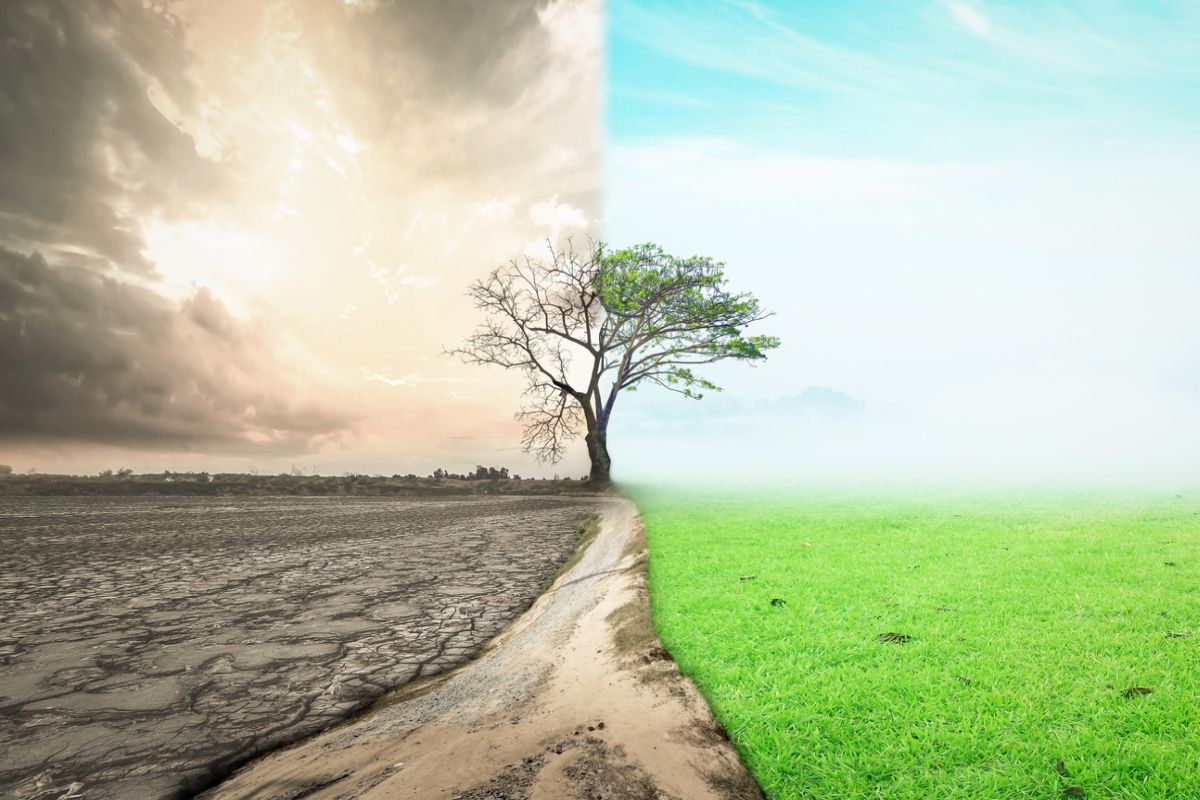Indian-origin journo wins Pulitzer for exposing China’s Muslim detention camps
"Throughout her reporting, Rajagopalan had to endure harassment from the Chinese government,"
The Kigali Amendment to the Montreal Protocol was brought into force on the 1st of January,2019, and it aims to phase out HFCs.

Climate change (Photo: Getty Images)
In her Pulitzer-winning book, ‘The Sixth Extinction’, Elizabeth Kolbert discusses a double bind: Countries are forcing species to move to new places by enabling climate change, and at the same time, making it harder for them to move. Across geologic time, the Earth has apparently survived five mass extinctions, and we are on the verge of the Sixth. We don’t believe humanity can survive this wave, unless we make rapid amends. There has been a rising tide of ignorance in the face of absolute facts in the global arena.
The very science that the world is using to reach the moon, Mars and beyond, is now telling us that we might have to abandon ship if we keep polluting and abusing the environment and have leaders who ignore science. Large corporations, especially energy corporations, release carbon emissions into the atmosphere. Factors that have been influencing these emissions are very much within our control. Consumerism amplifies climate change.
The Food and Agriculture Organization of the United Nations, in its report titled ‘Livestock’s Long Shadow’, argues that livestock is a major stressor on many ecosystems and on the planet as a whole. It is one of the largest sources of greenhouse gases, and these gases will only increase if we, as consumers, don’t make conscious choices about eating less or no meat. Another example of consumerism that has a longstanding impact on the environment is the luxury of air-conditioning. Ozone-depleting substances, like freon, drive refrigerators and air conditioners.
Advertisement
When they leak out or are dumped at the end of their useful lives, the freon migrates to the upper atmosphere, eroding the stratospheric ozone layer. This ozone layer protects humans and other living creatures from excessive solar radiation and skin cancers. It also aids in photosynthesis, a necessary process to sustain all animal and plant life. Before reaching the ozone layer, these ozone depleting chemicals – replaced today mostly by hydrofluorocarbons (HFCs) — add carbon to the atmosphere.
The Kigali Amendment to the Montreal Protocol was brought into force on the 1st of January,2019, and it aims to phase out HFCs. Gone are the days when we could look at climate change as a distant event. The world is already transforming in ways that might be irreversible. Monsoons are late, summers are early, weather events like typhoons and hurricanes are more frequent and extreme, and such phenomena seem here to stay. In India alone, years of no environmental preservation are already showing harmful consequences.
Throughout the rest of the world, the situation is no better. While some nations shrug off their responsibility citing that the climate crisis will not require changed human behavior anytime soon, a huge portion of the population still remains vulnerable. Coastlines and their inhabitants are already vulnerable to rising sea levels, and most world leaders turn a blind eye to this phenomenon. What is even more appalling is the fact that a few major companies saw this crisis coming from a mile away and chose to do nothing about it. In 1982, Exxon management received an internal memo highlighting the effect of their business on the environment and the impact the Greenhouse Effect is going to have on the planet.
Similarly, in 1988, Shell knew of the impact as well. Yet, they have made no changes to the way they function, and much worse, have led movements to spread misinformation to dent the movement surrounding Climate Change Activism. The change is real, and it is showing. Just recently, Jakarta felt the very real scare of rising sea levels. Several small island nations in the Pacific are also on the verge of being submerged. With the problems becoming more real, and near impossible to dodge, the world isn’t ready for what is coming. The Refugee laws as they stand, aren’t ready to take on the burden of ‘Climate Change Refugees’.
The Genocide laws, when they were written, never knew of the Genocide that is possible in a way such as this, i.e., no action against climate change would result in destroying the world and preventing entire generations from being born. Petro-chemical industry lobbies, mining lobbies and other special interests will keep pushing back against the movement to save the Earth. The Sixth Wave is upon us, and we need to confront and address the impending extinction of specieson a scale that was never before imagined.
(The writers are, respectively, a final year student and a professor of law at the Jindal Global Law School in Sonipat, Haryana)
Advertisement